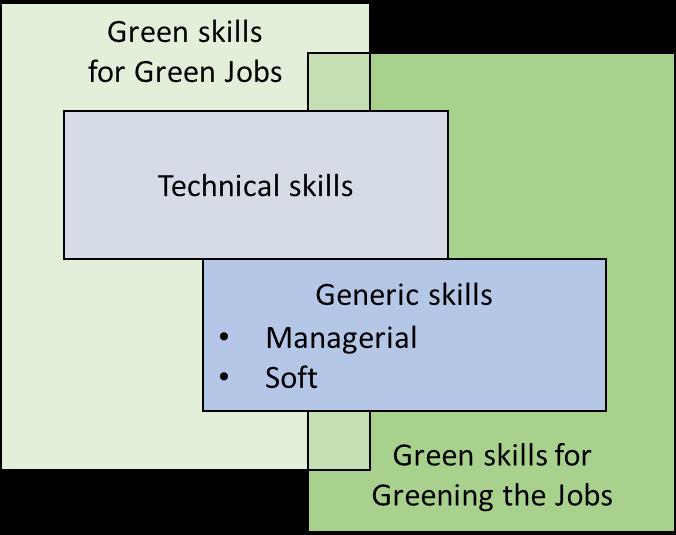Přechod na inkluzivnější a čistě nulovou ekonomiku vyžaduje lidi, kteří mohou vytvářet hodnotu v souladu se společenskými potřebami a planetárními hranicemi. Tato „zelená pracovní místa“ však nepocházejí odnikud. Jak ukazuje studie „Udržitelné vedení v Evropě“, musí být manažeři vybaveni „Zelenými dovednostmi pro ekologizaci pracovních míst“.
The managerial evolution from a traditional leadership — business as usual leadership — to a Sustainable Leadership aiming at the Sustainable transformation of our economy, needs to overcome existing relevant gaps within the current managerial professional category. These gaps concerning the key Sustainability/green skills and competences necessary to the management of a phenomenon, are so vast and complex that it has effectively been renamed as the “Sustainability Elephant”.
Training requirements can be very broad in terms of different needs in terms of the geopolitical area, the industrial sectors and company reality, the organisational functions or managerial levels. It therefore makes sense to systematise the potential different areas of training requirements.
First, we shall properly distinguish between:
- Green skills for Green jobs: skills required for specific jobs as a response to the need for managerial transition, with roles such as “CSR manager”, “Sustainability Manager”, “Energy Manager”, etc.
- Green skills for Greening the Jobs: new skills for traditional managers with a view to shift traditional roles towards transition in order to play an active role in Sustainable Leadership
We then shall distinguish specific skills from generic skills:
- Technical (specific) skills: These skills are particularly relevant for the green economy, for it requires multidisciplinary approaches, including professionals from different backgrounds such as engineers, architects, ecologists and archaeologists. The specific skills are not completely new but rather the result of mixing pre-existing competences. There are several career opportunities of this kind within the Green Economy.
- Generic Skills: these skills can be divided into two categories. The first concerns the Generic Soft Skills, such as the relational and communication talents, and being able to work in groups. The second revolves around the Generic Managerial Skills, such as the strategic leadership, innovation skills, creativity and resource management. A good transversal comprehension of the technological and scientific topics is strongly suggested.
Since the Sustainability transformation affects all sectors and managerial position, it is of crucial importance to create a level playing field with regards to Generic Sustainable Skills, including managerial and soft skills.
 Cs
Cs
